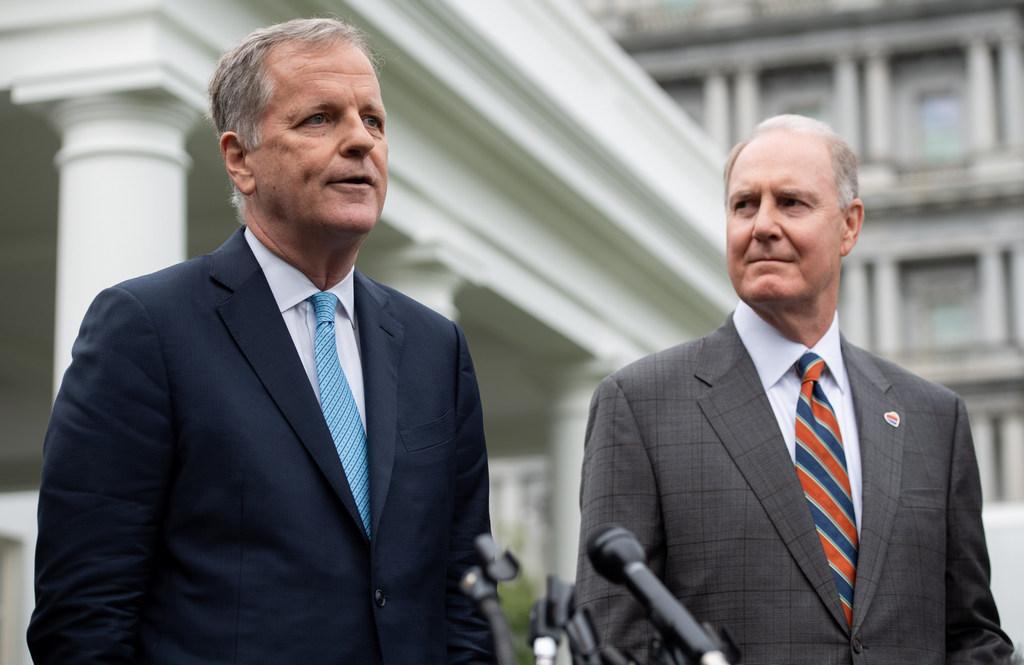ANALYSIS: Outgoing Leaders At US Airlines Brought Big Industry Changes

The lineup of US major airline CEOs will look quite different from spring 2022, by which time three big industry names will have retired.
Brad Tilden at Alaska Airlines, Gary Kelly at Southwest Airlines and Doug Parker at American Airlines each elected to place the leadership of their much-loved companies in other hands. Tilden handed the baton to Ben Minicucci in March 2021; Kelly will similarly hand over to Bob Jordan at the end of February; and Parker will pass company leadership to Robert Isom at the end of March.
All the successors are eminently capable and expert (and male, it should be noted; some things in this industry do not change). Minicucci has already steered Alaska back to profit ($194 million in the 2021 third quarter) and exercised and added options for more Boeing 737 MAX 9s.
Though their careers, Kelly, Parker and Tilden shared some common traits. All initiated and oversaw major mergers. Kelly created the largest US domestic passenger carrier—and took Southwest into international territory—with the acquisition of AirTran Airways. Tilden battled against JetBlue to acquire west coast carrier Virgin America. These were significant developments for Southwest and Alaska. But the biggest industry shifts were accomplished by Parker, who first integrated America West with US Airways and then merged US Airways with American. In both cases, the smaller airline acquired the much larger carrier, which in both instances were also in Chapter 11 bankruptcy protection. And in both cases, the name stayed with the larger carrier, hence America West became US Airways became American Airlines.
It was a merger path that created the world’s largest airline and set the course for today’s consolidated US industry, which arguably moved US airlines from a financially tumultuous history littered with bankruptcies—with the notable exception of Southwest—to becoming the world’s most profitable carriers by region.
Here, then, is another similarity: Kelly, Parker and Tilden all saw their companies soar to financial performance bests. And none expected to retire with their airlines devastated financially by a virus that continues to wreak havoc on air travel two years on. In 2017, Parker famously declared that American would never again lose money and that even in a bad year, it was capable of making a $3 billion pretax profit.
Parker, always an optimist, became CEO at Phoenix-based America West at just 40 years old and 10 days before the 9/11 attacks. America West was among the first airlines to get post-9/11 federal aid; small wonder that Parker thought the industry’s darkest days were in the past.
Another common factor—and likely a telling one in the financial success that each of these CEOs brought to their companies before 2020—is their financial backgrounds. Kelly joined Southwest from accounting firm Arthur Young, and Tilden was at Price Waterhouse before joining Alaska. Parker began his aviation career at American as a financial analyst under the wing of Bob Crandall. He then moved to America West as CFO, where Bill Franke—one of the most astute and financially successful industry pioneers—was CEO. As such, these were young men who saw the industry needed to mature—some might say “grow up”—and pay much closer attention to the shareholder. Deregulation, which Crandall was initially against, brought more freedom to airline executives in how they ran their companies, but it also required more fiscal discipline—a lesson that took too long to learn in most cases. Kelly, Parker and Tilden were notable exceptions.
Perhaps one of Parker’s most generous industry gifts has been to a competitor. Scott Kirby, a long-time friend and fellow executive at America West, US Airways and American (he was president at the two latter carriers) ventured to United Airlines as president in 2016 and, as CEO since 2020, is making dramatic and positive changes to a company long troubled by its fractious merger with Continental Airlines.
For Kelly and Parker, the work is not over. Both will remain on their company boards and both were scheduled in December to testify at a Senate hearing on how COVID-related government funding to the airlines, via the Payroll Support Program, was used and why it did not prevent labor shortage problems when passenger numbers picked up sharply in the summer. Kelly and Parker, who each acknowledged they underestimated how long it would take to restore operations, will likely be happy to take any congressional heat away from their successors but will almost certainly also hear some words of good wishes to long-serving, well-respected industry leaders.
Their careers, by design and personality, have not been in the style of the showmen, camera-stealing stretches of previous icons like Crandall and Southwest’s Herb Kelleher, but they have accomplished monumental change within their companies and across the broader industry, arguably through a far more complicated and challenging business environment.



